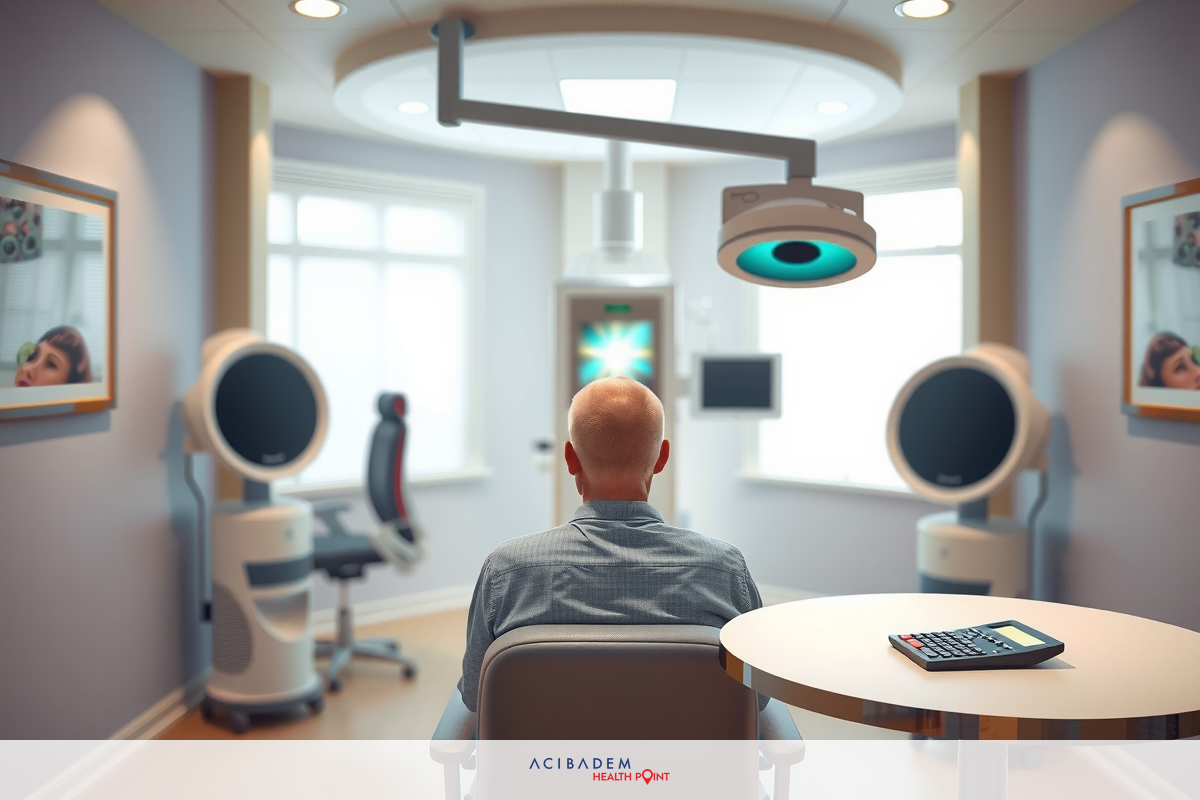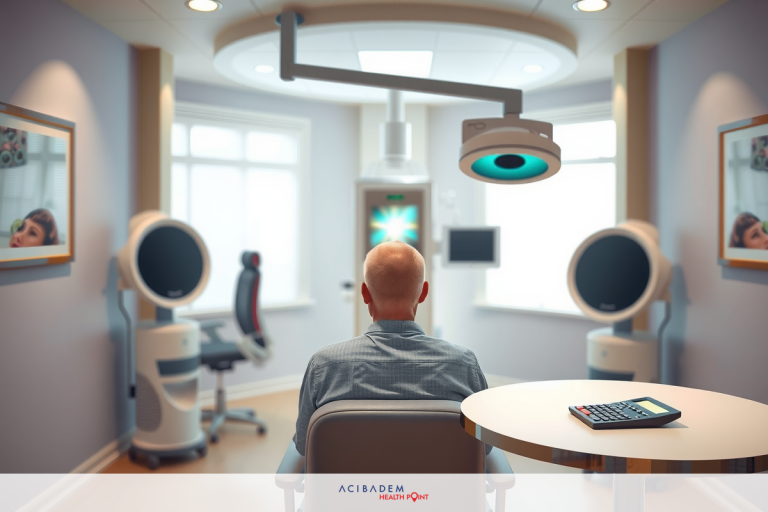Do You Get Put to Sleep for Laser Eye Surgery?
Do You Get Put to Sleep for Laser Eye Surgery? Laser eye surgery, an innovative approach in vision correction, often raises questions and concerns. One of the most common inquiries revolves around anesthesia and whether patients are rendered unconscious during the procedure.
Delving into the world of medical procedures can sometimes be overwhelming due to complex terminologies and concepts. Yet, when it comes to laser eye surgery, understanding the process is surprisingly straightforward. Typically, local anesthesia is administered – a method that numbs only a small area of your body while you stay fully conscious.
The idea of being awake might seem distressing at first glance but fear not! It provides an opportunity for interaction with your surgeon throughout this critical event. With real-time communication in place, any discomfort can be addressed promptly ensuring a smooth experience overall.
Types of Anesthesia
When it comes to laser eye surgery, anesthesia plays a critical role in ensuring patient comfort and successful procedure outcomes. In this context, anesthesia refers to the medications and techniques used by clinicians to eliminate or reduce pain during surgical procedures. Most commonly, local anesthesia is employed for laser eye surgeries – this implies that only the area undergoing surgery (the eyes in this case) would be numbed while you remain awake.
Local anesthesia has proven effectiveness in facilitating a comfortable experience for patients throughout their procedure at the clinic. It usually involves administering drops or an injection around your eyes which allows them to become numb without affecting your consciousness level. This type of targeted approach minimizes potential side effects associated with general anesthesia where sleep could be induced.
Other forms of sedation are sometimes used concurrently with local anesthesia depending on individual patient needs and anxiety levels. Mild sedatives might be administered orally or intravenously prior to the surgery aiming at easing nerves and creating a more relaxed environment for both patients and surgeons alike.
The choice between different types of anesthesia is typically made by your surgeon based on several factors including your overall health condition, specific eye issues being addressed as well as personal preferences communicated during pre-operative consultations. The ultimate goal is always ensuring a smooth operation devoid of unnecessary discomfort while maintaining optimal conditions for effective results post-surgery.
It’s worth noting that regardless of chosen methods, any form of sedation will undoubtedly affect sensory perceptions temporarily following the completion of your laser eye surgery; hence it’s crucially important not take up activities demanding sharp visual focus immediately afterwards such as driving home on your own from the clinic.
Local Anesthesia
Local anesthesia plays a pivotal role in the realm of laser eye surgery. This type of anesthesia is specifically designed to numb targeted areas, such as your eyes during the procedure. It’s an integral part of ensuring that patients experience minimal discomfort while undergoing treatment at the clinic. Interestingly, local anesthesia allows for patient consciousness throughout the operation, which can be beneficial for real-time communication and response adjustments.
In practice, administering local anesthesia involves placing drops or injecting medication around the eyes to induce numbing effects. This process ensures that any potential pain stimuli occurring during surgical manipulations are effectively blocked out. The localized nature of this method significantly reduces systemic side effects often associated with general anesthesia – where sleep could be induced – hence it has emerged as a go-

to choice in many clinics performing laser eye surgeries worldwide.
Although it might sound counterintuitive initially, remaining awake during your laser eye surgery, under local anesthesia, actually contributes positively towards overall procedural success rates. This is due to enhanced interactivity between you and your surgeon throughout each step of your journey, from pre- operative preparations all through to post-procedure care and follow-ups.
Despite initial apprehensions about potential discomforts when hearing about staying conscious during their procedures, most patients report feeling only mild pressure sensations, without actual pain, once local anesthetic takes full effect. This validates its effectiveness in relieving fears alongside alleviating physical discomforts simultaneously.
Awake During the Procedure
The notion of being awake during a surgical procedure, such as laser eye surgery, may seem daunting. However, this approach is not only common but also advantageous in many ways. With local anesthesia effectively numbing your eyes and potentially mild sedation helping ease any anxiety, patients are able to stay alert and interact with their surgeon throughout the operation.
Being conscious allows for immediate feedback loop between you and your surgeon. If you experience any discomfort or unexpected sensations during the clinic visit for your procedure, you can communicate it instantly allowing for prompt attention and adjustments if necessary. This real-time communication often leads to more customized care tailoring each step according to individual comfort levels.
Moreover, being awake provides an opportunity to follow instructions from your surgeon directly which can be crucial during certain phases of laser eye surgeries where patient cooperation significantly influences results. For instance, you might be asked to focus on a particular light source at some points; having an active role like this contributes towards achieving optimal outcomes post-procedure by ensuring precision alignment during critical moments.
While initial thoughts about staying awake could trigger concerns about potential discomforts or fears amongst prospective patients contemplating undergoing laser eye surgery procedures at clinics; experiences shared by past recipients often highlight just how well these apprehensions are managed efficiently through strategic use of local anesthesia coupled with personalized care approaches practiced by skilled medical teams leading up each operation session ensuring smooth experiences overall.
Frequently Asked Questions
What is the main type of anesthesia used for laser eye surgery?
Local anesthesia is typically used during laser eye surgeries. This form of anesthesia numbs only a specific area – in this case, your eyes – while you remain fully conscious.
Will I feel any pain during the procedure?
With effective use of local anesthesia, patients usually do not experience pain during their procedure. They may feel some pressure or unusual sensations, but these are generally well-tolerated.
Why should I be awake during my laser eye surgery?
Staying awake allows for real-time communication with your surgeon, enabling immediate feedback and adjustments as needed. It also permits direct following of instructions which can be crucial at certain stages of the operation.
Is it safe to drive home after my surgery?
As the effects of sedation and local anesthesia can temporarily affect sensory perceptions post-surgery, it's advised not to engage in activities requiring sharp visual focus immediately afterwards such as driving. Arranging alternative transport options from the clinic would be advisable.
Please note that these answers are provided for informational purposes only and do not constitute medical advice.








